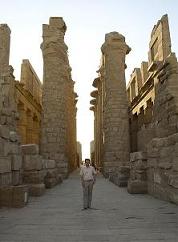Productive Landscapes: An interdisciplinary inquiry into the productivity of crop husbandry

F.B.J. (Frits) Heinrich, M.A., MSc
E-mail: f.b.j.heinrich@rug.nl
Promotors: R.T.J. (Rene) Cappers, P.A.J. (Peter) Attema
Co-promotor: W. M. (Willem) Jongman
Period of Employment: 1 October 2012 - 30 September 2016
Financed by: NWO Sustainable Humanities
Project Description:
This project will inquire into the productivity of crop husbandry in the Roman Empire between 200 B.C. and A.D. 500. Until c. A.D. 200 the population of the Empire significantly rose, alongside the appearance of strong indicators of increased prosperity; this means there were more people, who were, on average, eating more. This would have necessitated an increase of agricultural production and of productivity. The central question that will be addressed in this research is how Roman farmers could meet these increasing demands. Nevertheless, in the Malthusian paradigm for pre-modern agricultural economies, an increase of productivity is unthinkable. Technological improvements were absent or marginal, the amount of land limited, while the only way of increasing productivity - employing more labour per unit of land - decreased the productivity per unit of labour. The applicant believes that an innovative approach towards choices for agricultural practices and crops enabled farmers to increase their productivity and meet the higher demands. The aim of this study will be to understand which the choices were that Roman farmers made within the context of the potential of their respective landscapes, climates and market conditions. The approach to answering the question raised above, will be through case studies (settlements, regions) with a focus on studying (existing) archaeobotanical datasets in combination with written sources and other types of archaeological evidence to reconstruct practices and crop-choices on a local level. The results of this inquiry will be interpreted through a model containing the factors and relations that can motivate strategic choices. Such a model would be constructed using theories and examples drawn from anthropology, ethnography, ethnoarchaeobotany, agricultural and socioeconomic history and relevant written sources. The innovative and interdisciplinary approach of the proposed research towards a meta-analysis of the agricultural economy, will enable it to answer questions on the structure and performance of Roman agriculture that were previously unreachable. The answers to these questions will touch upon the very foundation of the Roman economy and will shed a light on the reasons and extent of its success.
| Last modified: | 23 July 2018 1.29 p.m. |
